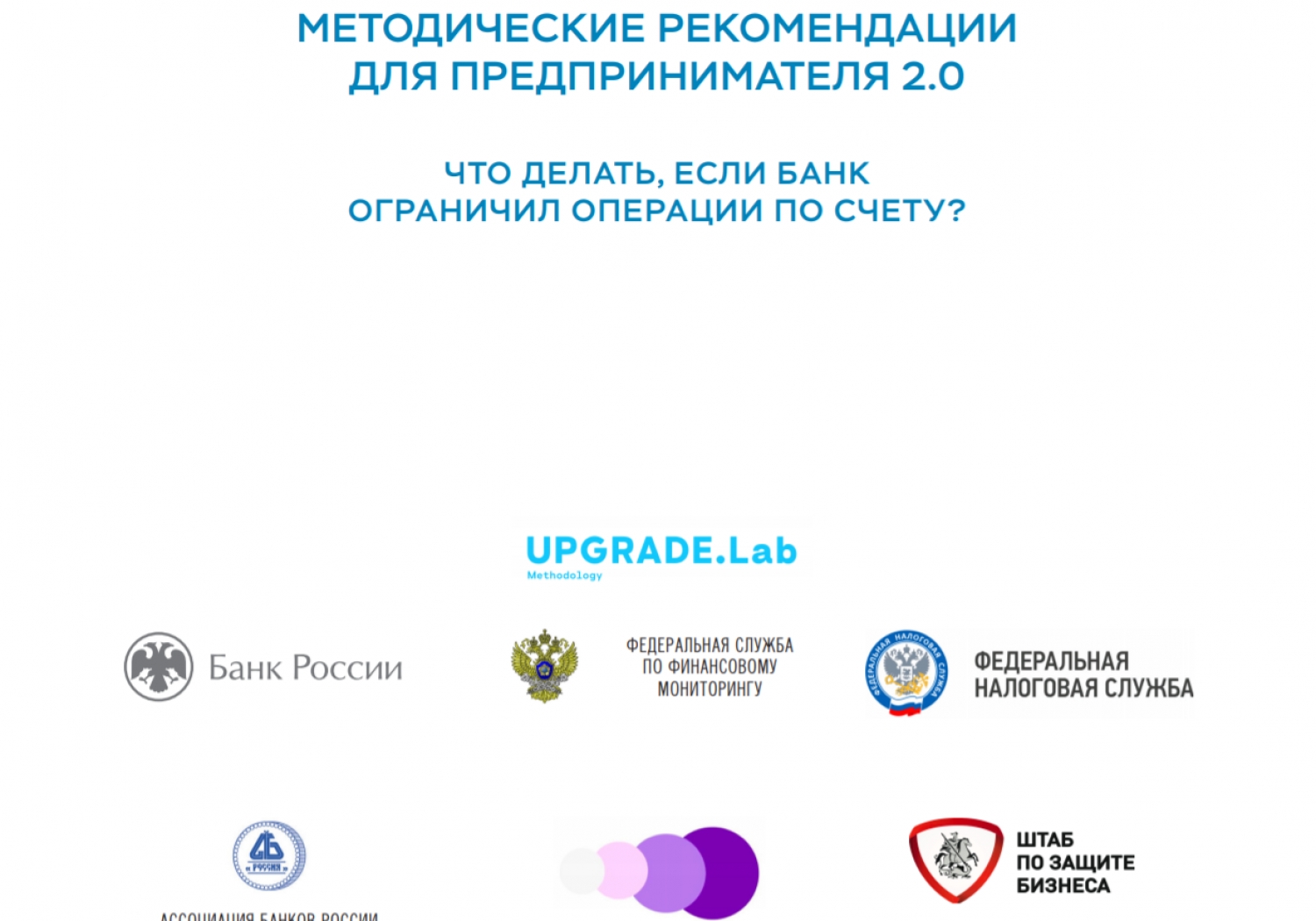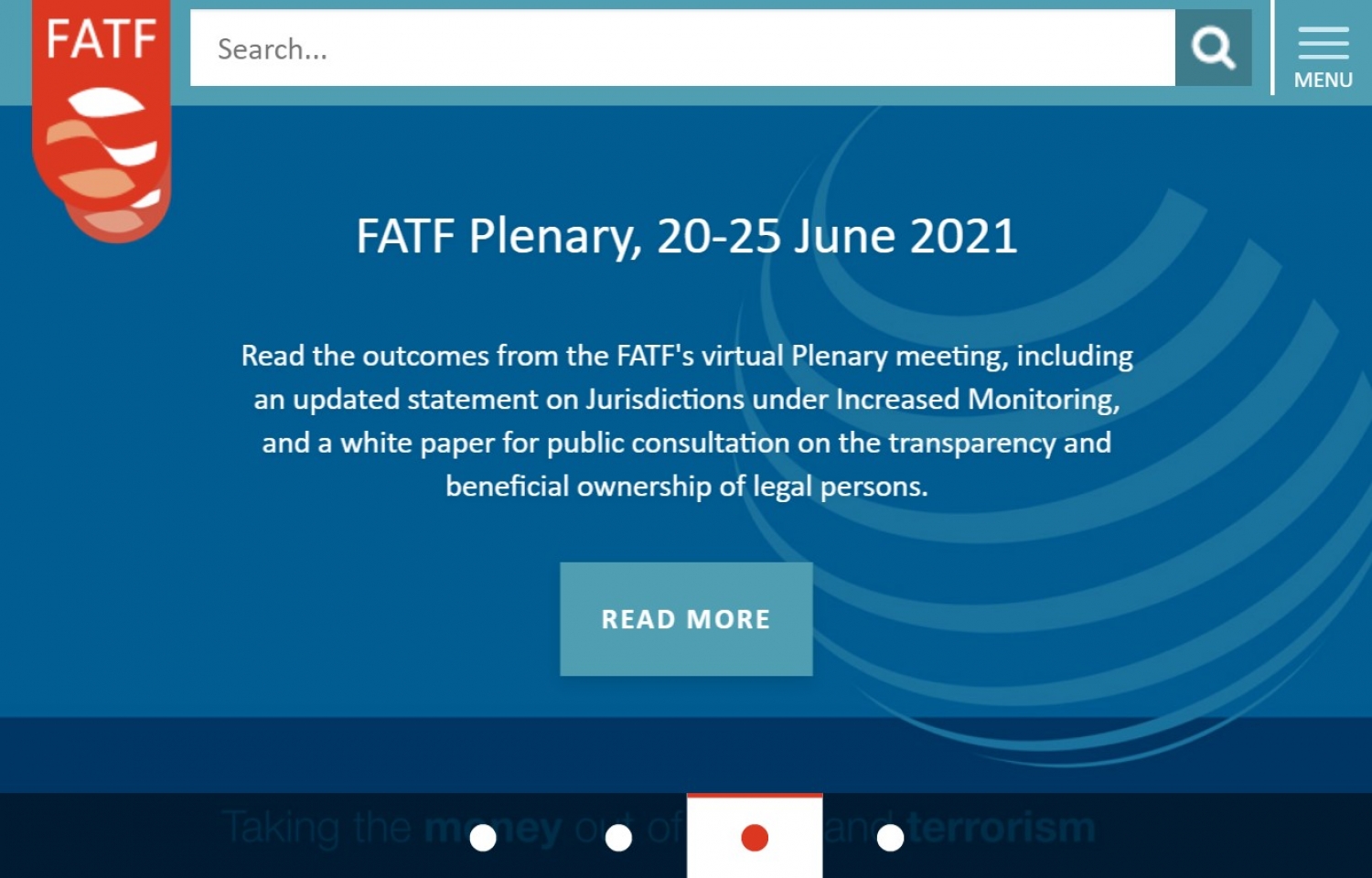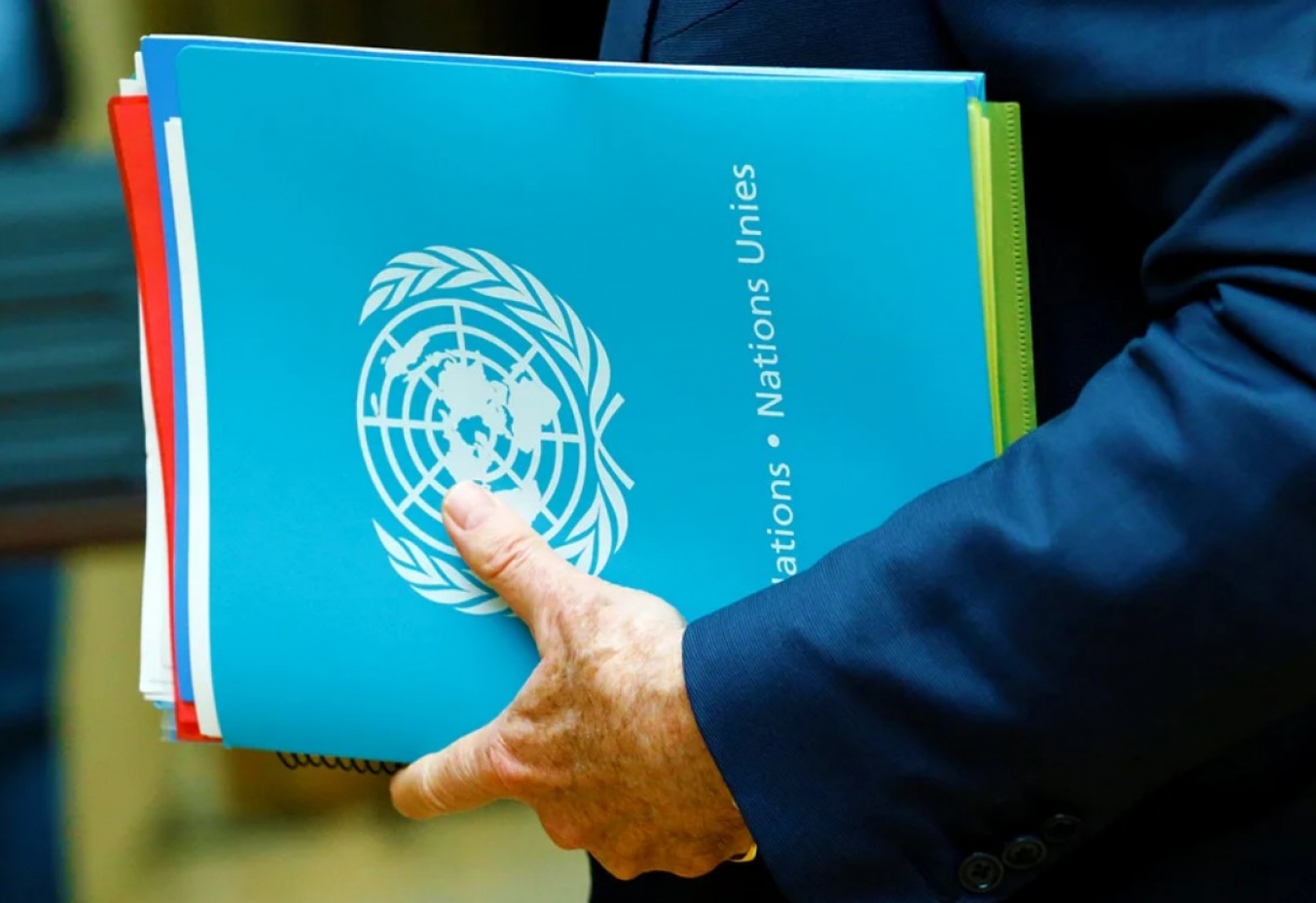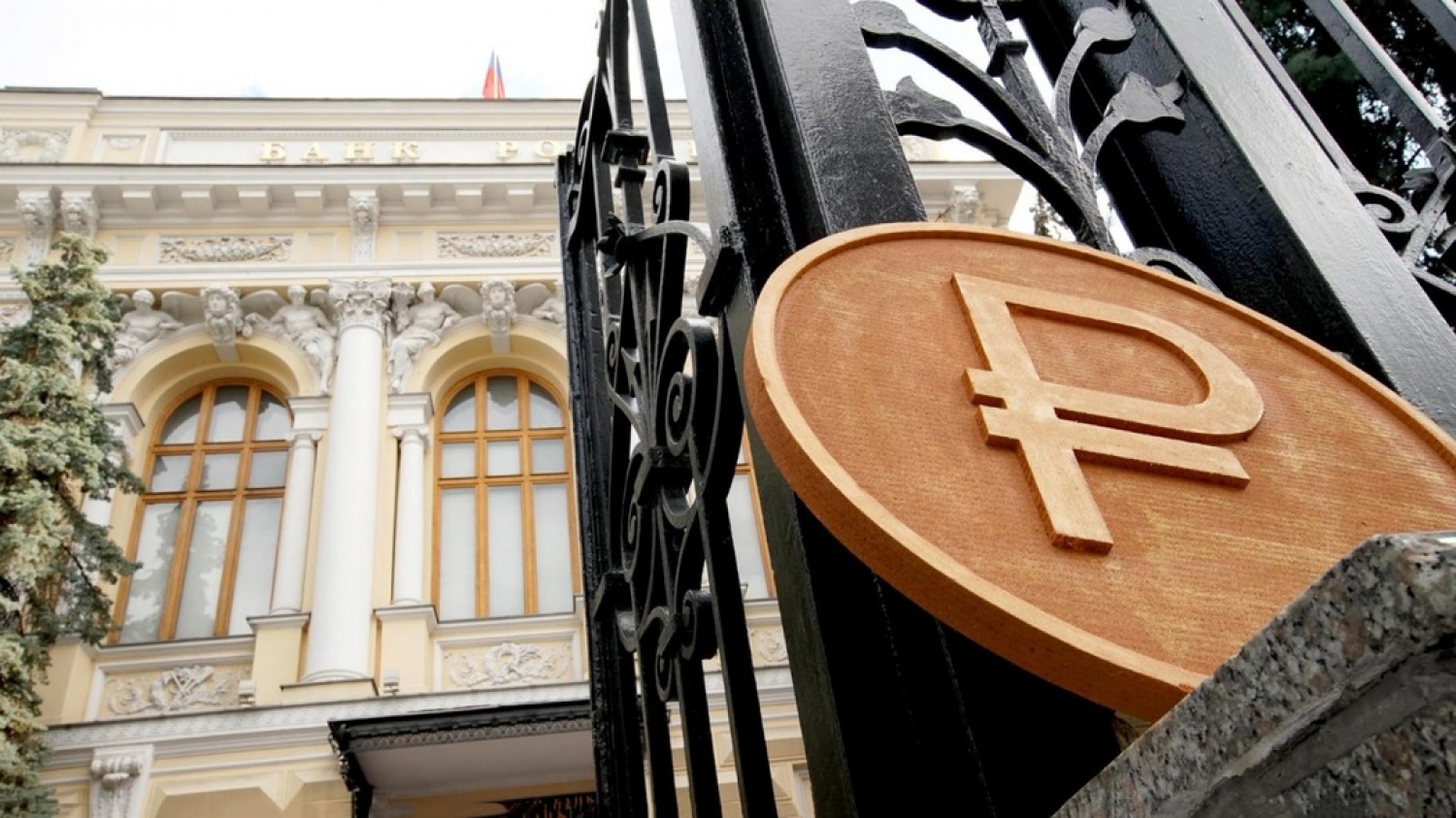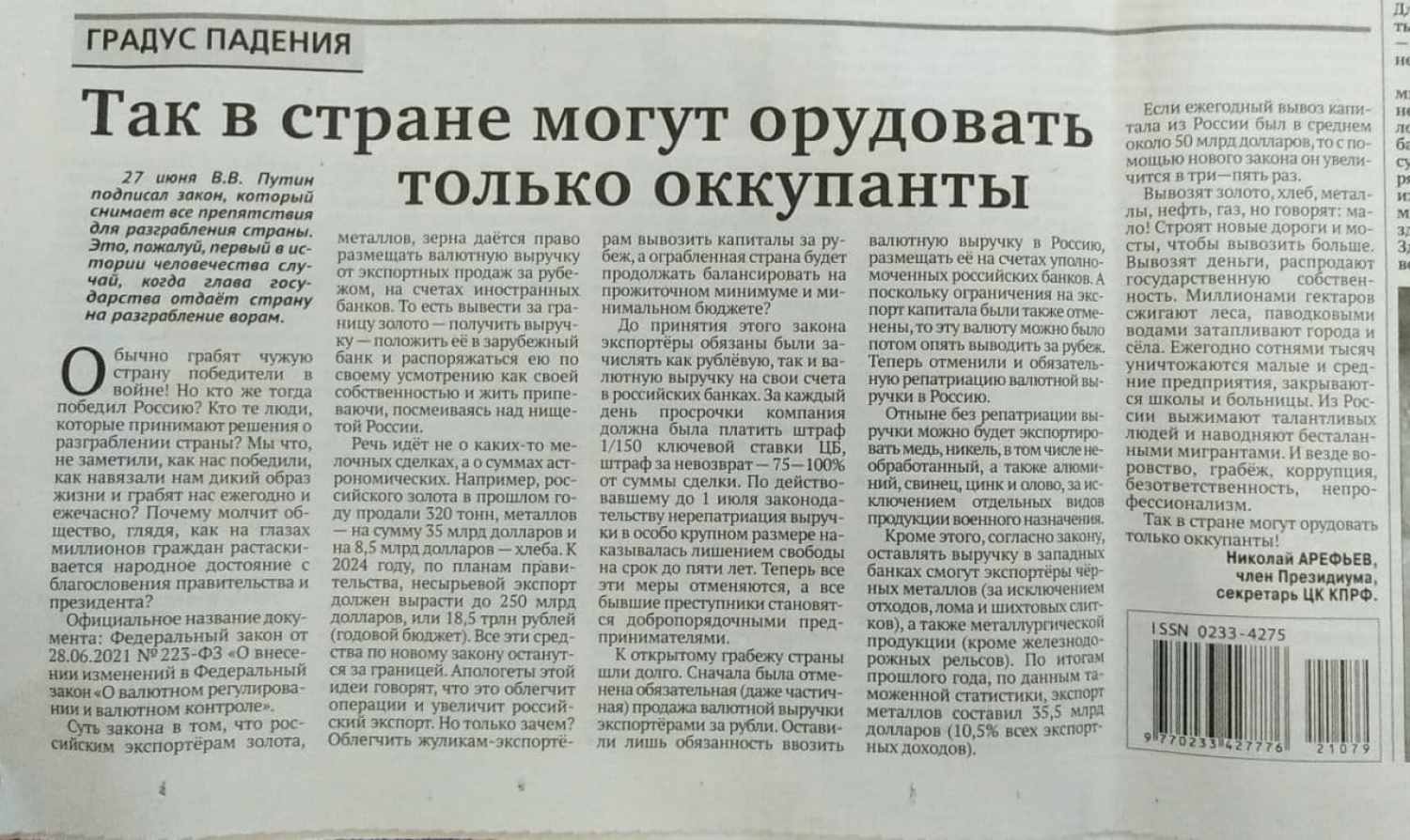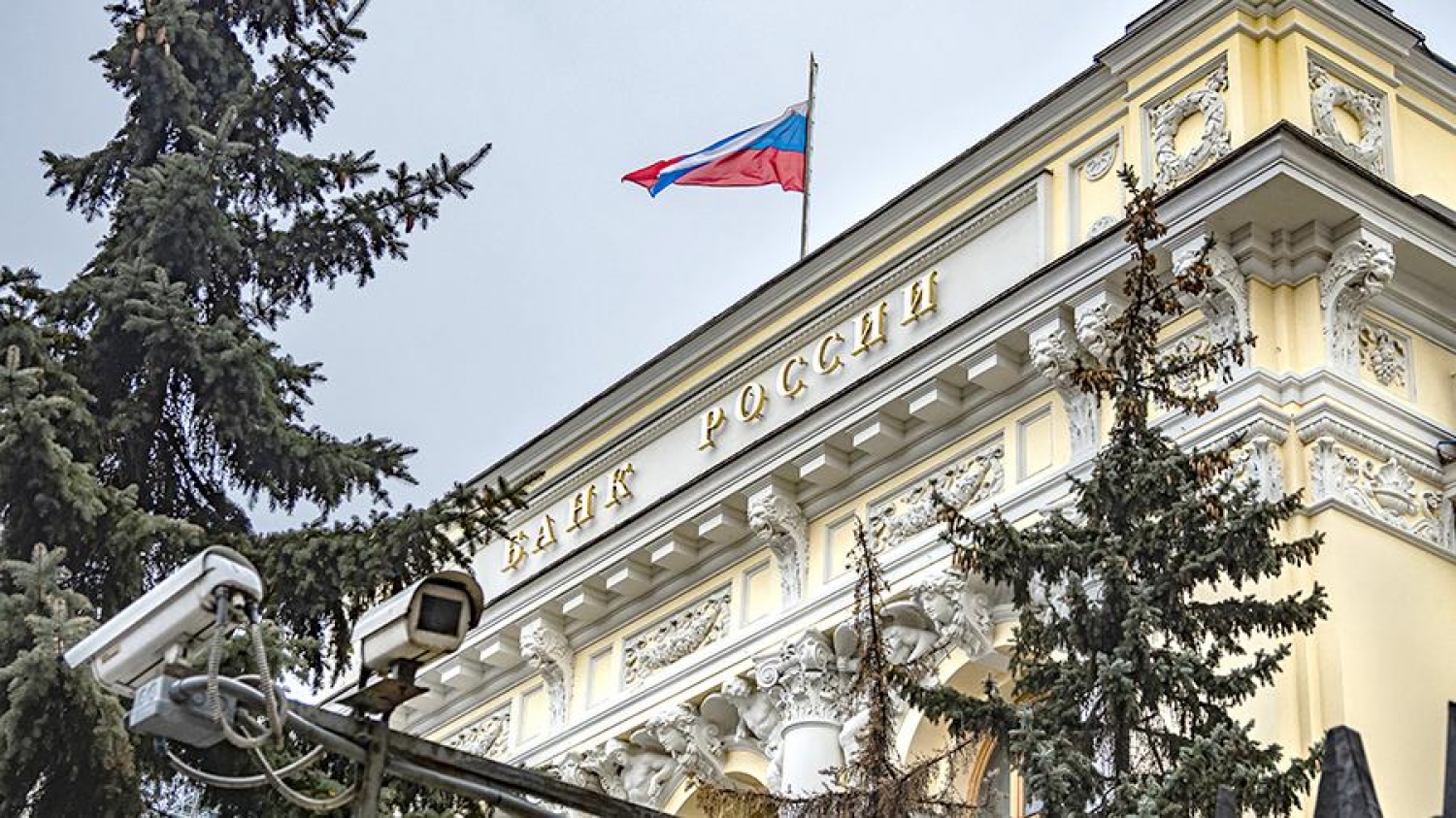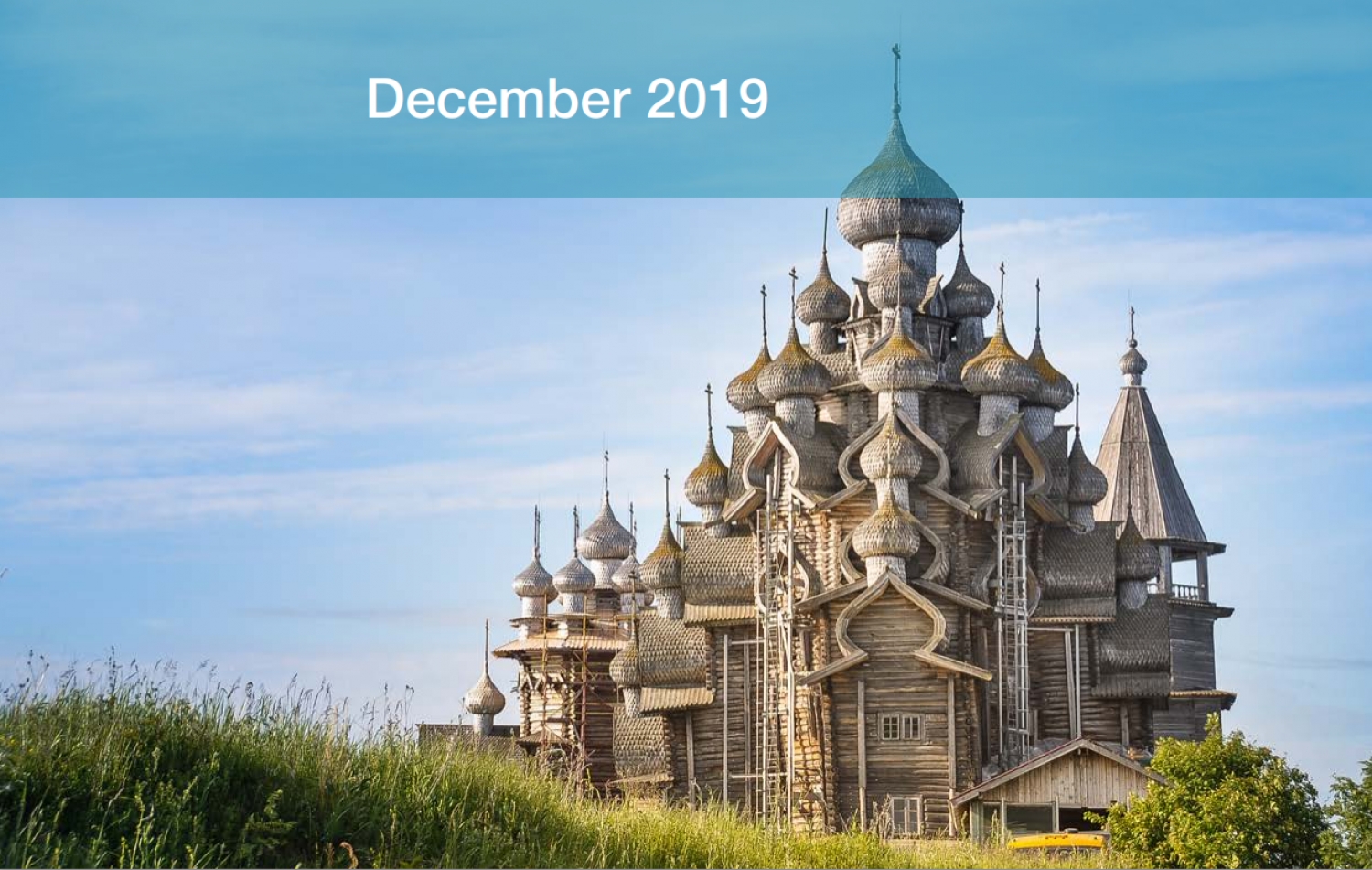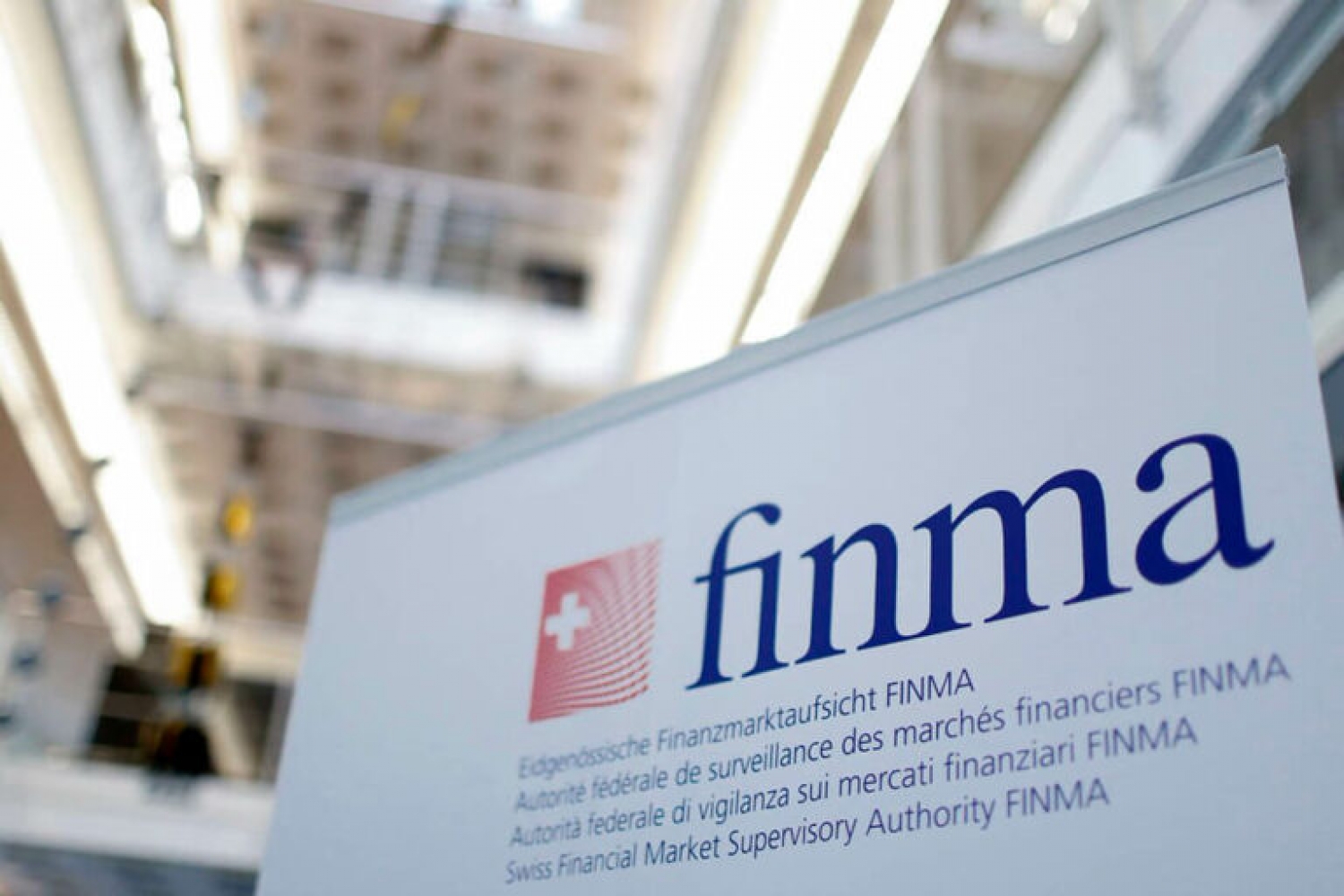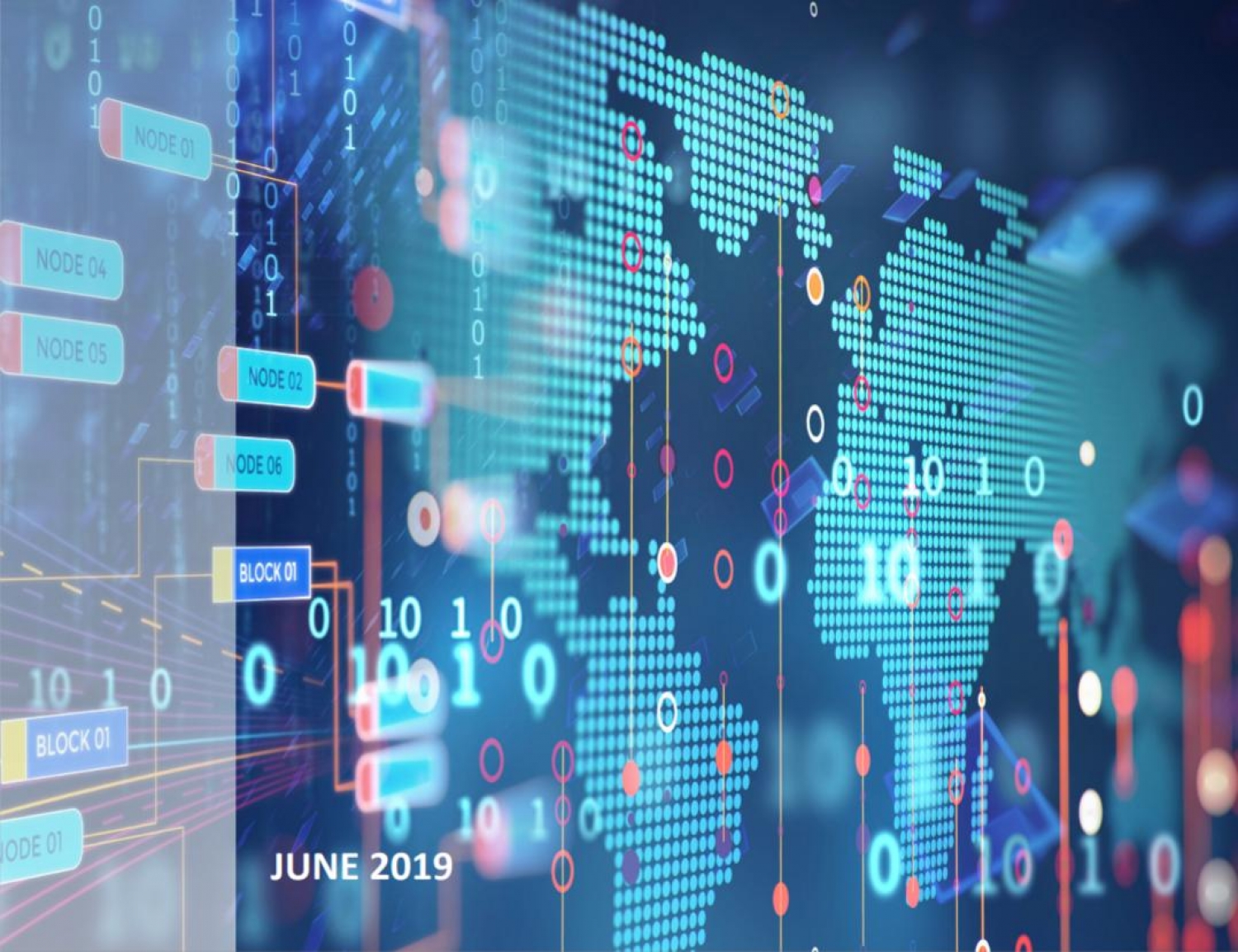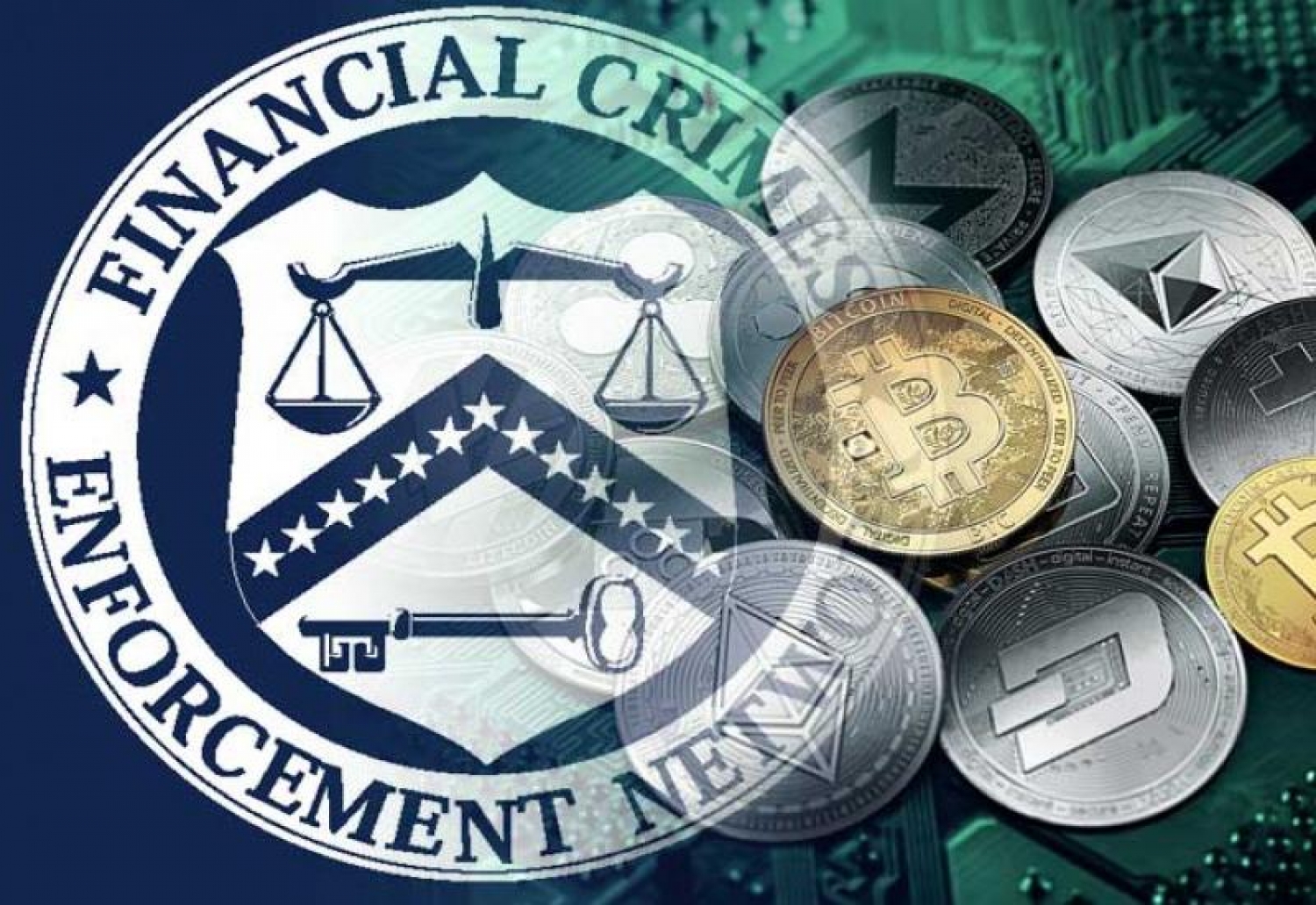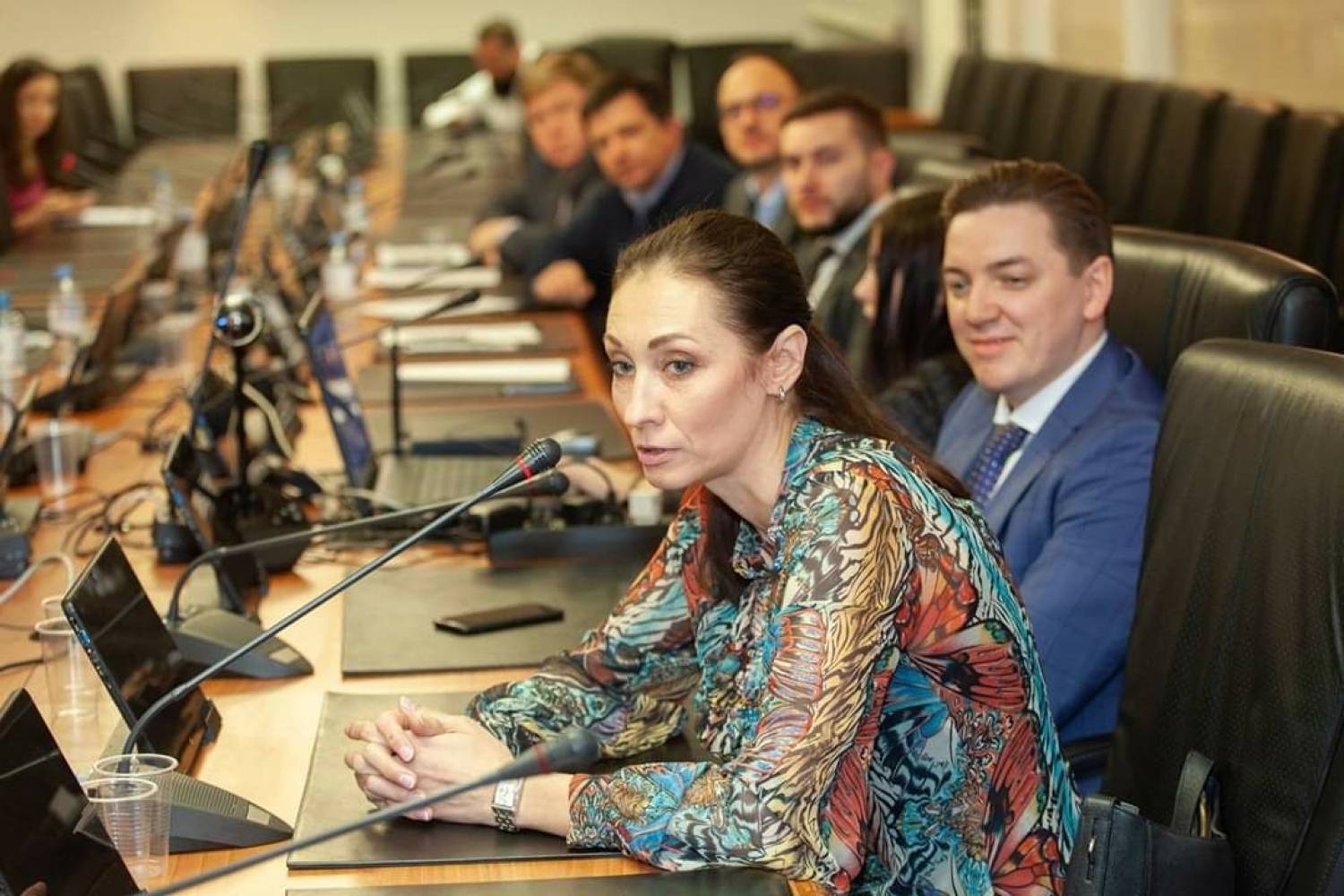
CRYPTOINDUSTRY LEGISLATION (22)
Cryptoindustry legislation.
ОБ ОСПАРИВАНИИ РЕШЕНИЙ ПО ОТКАЗУ В ПРОВЕДЕНИИ ОПЕРАЦИИ ФИНАНСОВЫМИ ОРГАНИЗАЦИЯМИ
Written by Manuylova NatalyaОспаривать решение по отказу финансовой организации сложнее, чем осуществить проверку контрагента или адреса криптокошелька.
Росфинмониторинг 14.09.2021 опубликовал информационное сообщение для лиц, которым было отказано в проведении операции, заключении договора банковского счета (вклада) либо договор банковского счета (вклада) был расторгнут в соответствии с требованиями пунктов 5.2 И 11 статьи 7 ФЗ №115-ФЗ.
В сообщение обращено внимание на то, что Росфинмониторинг не представляет клиентам финансовых организаций сведения о принятых в отношении них решениях об отказе или расторжении. Необходимо обращаться в финансовую организацию, в которой клиент обслуживается (обслуживался).
Дополнительно Росфинмониторинг рекомендует обратиться при взаимодействии к Информационному письму Федеральной службы по финансовому мониторингу 30 июля 2018 г. № 55 «О применении отдельных норм Федерального закона от 07.08.2001 № 115-ФЗ «О противодействии легализации (отмыванию) доходов, полученных преступным путем, и финансированию терроризма» в части функционирования механизма «реабилитации» клиентов, в отношении которых принято решение об отказе в обслуживании», и Методическими рекомендациями для предпринимателя 2.0 «Что делать, если банк ограничил операции по счету?», в которых даны разъяснения о возможных действиях для предотвращения применения кредитными организациями мер по отказу.
В нашей практике есть положительный опыт разблокировки банковского счета после предоставления заключения специалистов и даче пояснений по операциям.
ИТОГИ ЧЕТВЁРТОГО ПЛЕНАРНОГО ЗАСЕДАНИЯ ФАТФ В ПАРИЖЕ
Written by Aleksandr PodobnykhВ период с 21 по 25 июня состоялось очередное Пленарное заседание ФАТФ под председательством доктора Маркуса Плейера из Германии. В связи с продолжающейся пандемией COVID-19 делегаты, представляющие 205 членов Глобальной сети и организаций-наблюдателей, таких как МВФ, Организация Объединенных Наций и Всемирный банк, встретились онлайн. Во всей глобальной сети ФАТФ страны и юрисдикции продолжают решать проблемы, связанные с пандемией. Многие страны все еще занимаются экстренным реагированием на этот беспрецедентный кризис в области здравоохранения, в то время как другие страны постепенно выходят из ограничений, связанных с пандемией. Впереди еще много задач для обеспечения того, чтобы каждая страна восстановилась. Хотя правительствам важно сосредоточиться на восстановлении своей экономики, они должны продолжать в полной мере и эффективно применять стандарты ФАТФ, основанные на оценке рисков, и прикладывать усилия, чтобы преступники и террористы не находили новых и появляющихся лазеек для злоупотребления.
Делегаты завершили работу в ряде важных областей. К ним относятся отчет, в котором подробно описываются финансовые потоки, связанные с экологическими преступлениями, и доклад о финансировании терроризма по этническим или расовым мотивам, оба приоритетны в рамках председательства Германии в ФАТФ. ФАТФ завершила второй 12-месячный обзор прогресса в рамках Глобальной сети ФАТФ по внедрению пересмотренных стандартов ФАТФ в отношении виртуальных активов и поставщиков услуг виртуальных активов (VASP). ФАТФ завершила подготовку двух докладов в рамках своего проекта по изучению проблем и возможностей технологических инноваций для повышения эффективности усилий по борьбе с отмыванием доходов и финансированием терроризма. ФАТФ также завершила подготовку отчета для государственных органов, в котором определены конкретные действия по улучшению результатов возвращения активов, которые помогут увеличить количество активов, возвращенных жертвам преступлений, и устранить факторы, способствующие преступной деятельности. Наконец, ФАТФ согласилась выпустить "белую книгу" для консультаций с общественностью по вопросам прозрачности и бенефициарного владения юридическими лицами в целях усиления мер, которые не позволят преступникам скрывать незаконную деятельность и доходы, что является глобальным приоритетом.
1. Стратегические инициативы
- Изучение возможностей и проблем цифровой трансформации ПОД/ФТ
- Виртуальные активы: второй 12-месячный анализ внедрения
- Отмывание доходов от экологических преступлений
- Финансирование терроризма по этническим или расовым мотивам
- Операционные проблемы, связанные с возвращением активов
- Усиление мер по противодействию финансированию распространения оружия массового уничтожения (новое руководство и пересмотренная пояснительная записка)
- Усиление стандартов ФАТФ в отношении бенефициарной собственности (консультации с общественностью)
- Снижение непреднамеренных последствий стандартов ФАТФ
2. Процессы, относящиеся к конкретным странам
- Взаимная оценка Японии и Южной Африки
- Юрисдикции, находящиеся под усиленным контролем
- Юрисдикция больше не находящаяся под усиленным контролем (Гана)
- Укрепление глобальной сети
1. Стратегические инициативы
Изучение возможностей и проблем цифровой трансформации ПОД/ФТ
Под председательством Германии ФАТФ запустила проект по изучению преимуществ, эффективности и экономии средств, которые могут предложить технологии, а также проблем, которые цифровая трансформация создает для ПОД/ФТ. На этом пленарном заседании ФАТФ завершила работу в двух областях и обсудила прогресс в использовании передовой аналитики и машинного обучения для выявления подозрительной деятельности по отмыванию доходов (ОД) и финансированию терроризма (ФТ), анализа финансовой информации и понимания рисков ОД/ФТ.
Возможности и проблемы новых технологий для ПОД/ФТ
Новые технологии могут повысить скорость, качество и эффективность мер по борьбе с отмыванием доходов и финансированием терроризма. Они могут помочь финансовым учреждениям и надзорным органам оценить эти риски более точно, своевременно и всесторонне. При внедрении ответственного и основанного на риске подхода новые технологии и инновационные продукты и услуги также могут улучшить доступность финансовых услуг, привлекая больше людей в регулируемую финансовую систему и тем самым повышая эффективность мер ПОД/ФТ. ФАТФ завершила подготовку отчета, в котором определены новые и доступные технологические решения. В докладе освещаются необходимые условия, политика и практика, которые должны быть созданы для успешного использования этих технологий для повышения эффективности и результативности ПОД/ФТ. В докладе также рассматриваются препятствия, которые могут встать на пути успешного внедрения новой технологии.
Подведение итогов по объединению данных, совместной аналитике и защите данных
Технологические достижения последних лет позволили финансовым учреждениям более эффективно анализировать большие объемы данных и более эффективно выявлять закономерности и тенденции. Объединение данных и совместная аналитика могут помочь финансовым учреждениям сотрудничать для лучшего понимания, оценки и снижения рисков отмывания доходов и финансирования терроризма. ФАТФ изучила инновационные технологии, которые облегчат и повысят эффективность выявления преступной деятельности, одновременно сократив количество ложных срабатываний и предотвратив использование преступниками информационных пробелов между финансовыми учреждениями.
В докладе также подчеркивается необходимость защиты данных и конфиденциальности, позволяя правительствам и учреждениям бороться с финансовыми преступлениями: ПОД/ФТ, конфиденциальность и защита данных являются важными общественными интересами, которые служат важным целям. Новые и появляющиеся технологии, повышающие конфиденциальность, предлагают многообещающие способы защиты информации в конкретных случаях использования и в соответствии с национальными и международными рамками защиты данных и конфиденциальности.
Виртуальные активы: второй 12-месячный анализ внедрения
На пленарном заседании был рассмотрен второй 12-месячный анализ внедрения пересмотренных стандартов ФАТФ в отношении виртуальных активов и VASP. В отчете отмечается, что многие юрисдикции продолжают добиваться прогресса в реализации этих изменений, которые будут завершены в 2022 году. До сих пор 58 из 128 юрисдикций, представивших отчеты, сообщили, что в настоящее время они внедрили пересмотренные стандарты ФАТФ, причем 52 из них регулируют VASP и шесть из них запрещают использование VASP. Частный сектор добился прогресса в разработке технологических решений, позволяющих внедрить "правило поездок". Однако большинство юрисдикций еще не выполнили требования ФАТФ, включая “правило о поездках”. Это сдерживает дальнейшие инвестиции в необходимые технологические решения и инфраструктуру соответствия требованиям. Эти пробелы в реализации также означают, что у нас еще нет глобальных гарантий для предотвращения неправомерного использования VASP для отмывания доходов или финансирования терроризма. Отсутствие регулирования или осуществления регулирования в юрисдикциях может привести к продолжению неправомерного использования виртуальных активов посредством юрисдикционного арбитража.
В докладе подчеркивается необходимость того, чтобы все юрисдикции, как можно скорее внедрили пересмотренные стандарты ФАТФ. В докладе также определены потенциальные будущие действия ФАТФ по предотвращению неправомерного использования виртуальных активов для преступной деятельности, в том числе путем уделения особого внимания действиям, направленным на снижение риска использования виртуальных активов, связанных с вымогательством. Отчет будет опубликован 5 июля. Пленарное заседание также согласилось завершить доработку пересмотренного руководства ФАТФ по виртуальным активам и VASP в октябре 2021 года. Это пересмотренное Руководство поможет юрисдикциям и частному сектору в приоритетном порядке внедрить пересмотренные стандарты.
Отмывание денег от экологических преступлений
Экологическая преступность является значительным преступным предприятием, приносящим миллиардную незаконную прибыль каждый год. Это включает незаконную добычу полезных ископаемых, незаконные лесозаготовки, незаконную расчистку земель и незаконный оборот отходов. Правительства и частный сектор предпринимали ограниченные действия по выявлению, расследованию и судебному преследованию отмывания доходов от этих преступлений. В результате экологические преступления превратились в деятельность “с низким риском и высоким вознаграждением”, которая обеспечивает безопасный источник дохода для преступников, нанося при этом разрушительный ущерб мировой экосистеме.
Основываясь на работе ФАТФ по борьбе с незаконной торговлей дикими животными, ФАТФ завершила подготовку доклада, который повышает осведомленность о масштабах и методах отмывания денег, связанных с экологическими преступлениями. В докладе подчеркивается, что преступники часто используют торговое мошенничество и подставные компании для отмывания доходов от экологических преступлений. Они часто смешивают легальные и нелегальные товары на ранних этапах изменения предложения, чтобы затруднить обнаружение подозрительных финансовых потоков.
В докладе подчеркивается необходимость того, чтобы уполномоченные органы по борьбе с отмыванием доходов сотрудничали со следователями по экологическим преступлениям, природоохранными агентствами и другими нетрадиционными партнерами и зарубежными коллегами.
Финансирование терроризма по этническим или расовым мотивам
ФАТФ завершила подготовку доклада о финансировании терроризма по этническим или расовым мотивам, также называемого крайне правым терроризмом (КПТ). В то время как большинство нападений КПТ были совершены самофинансируемыми одиночными субъектами, они также могут включать малые и средние организации, а также транснациональные крайне правые движения. В последние годы участились нападения крайне правых, что подчеркивает необходимость повышения осведомленности об этом сложном явлении и его финансировании. Хотя группы КПТ действительно получают финансирование от преступной деятельности, большая часть финансирования поступает из законных источников, таких как пожертвования, членские взносы и коммерческая деятельность. В докладе освещаются проблемы в решении проблемы финансирования КПТ и предотвращения нападений. Эти проблемы включают в себя то, как страны рассматривают угрозу, начиная от терроризма и заканчивая насилием на расовой почве. Немногие страны определили группы КПТ в качестве террористов, и существуют различия в правовых режимах стран для борьбы с деятельностью, связанной с КПТ. Группы КПТ становятся все более изощренными в том, как они перемещают и используют средства, и между этими группами усиливаются транснациональные связи. В докладе содержится призыв к странам продолжать развивать свое понимание этой все более транснациональной преступной деятельности, в том числе путем учета финансирования терроризма по этническим или расовым мотивам (ФТ ЭРМ) в своих национальных оценках рисков. Он также призывает государственных, частных и международных партнеров к совместной работе по выявлению угроз и обмену передовым опытом в борьбе с ФТ ЭРМ.
Операционные проблемы связанные с возвращением активов
Возвращение активов является одним из ключевых инструментов эффективных действий по борьбе с отмыванием доходов и финансированием терроризма. Изымая прибыль, власти устраняют стимулы, провоцирующие преступную деятельность. Возвращение активов компенсирует жертвам преступлений и не позволяет незаконным средствам попасть в финансовую систему и экономику в целом. Возвращение активов препятствует преступной деятельности, снижает опасность для общества и укрепляет доверие к справедливому обществу и верховенству закона. Хотя возвращение активов лежит в основе Рекомендаций ФАТФ, подавляющее большинство стран, в которых проводилась оценка, в текущем цикле взаимных оценок достигли лишь низкого или умеренного уровня эффективности в плане их способности конфисковывать доходы от преступлений. ФАТФ завершила подготовку доклада для государственных органов, в котором анализируются ключевые препятствия на пути возвращения активов и способы их преодоления.
Руководство по оценке и снижению рисков финансирования распространения
В октябре 2020 года ФАТФ пересмотрела свои Стандарты (R.1 и INR.1), чтобы потребовать от стран, финансовых учреждений и определённых нефинансовых предприятий и профессий (ОНФПП) выявлять, оценивать, понимать и снижать риски финансирования распространения.
В настоящее время ФАТФ подготовила руководство по оценке и снижению рисков финансирования распространения, чтобы помочь странам, финансовым учреждениям, ОНФПП и VASP эффективно выполнять новые обязательные требования ФАТФ. В руководстве, которое отражает результаты консультаций с общественностью в марте 2021 года, объясняется, как государственный, так и частный секторы должны проводить оценки рисков в контексте финансирования распространения, и как они могут снизить выявленные риски. Это руководство включает рекомендации для надзорных органов и органов саморегулирования, ответственных за обеспечение надлежащей оценки и снижения рисков финансирования распространения. В Руководстве подчеркивается необходимость того, чтобы надзорные органы, финансовые учреждения, ОНФПП и VASP применяли новые обязательства соразмерно выявленным рискам, чтобы избежать снижения риска или финансового исключения.
Усиление мер по предотвращению финансирования распространения оружия массового уничтожения
ФАТФ в настоящее время обновила Пояснительную записку к Рекомендации 15, чтобы уточнить, что новые обязательства по оценке и смягчению рисков финансирования распространения также распространяются на VASP. Как и финансовые учреждения и ОНФПП, VASP теперь должны выявлять, оценивать и принимать меры для снижения рисков финансирования распространения.
Усиление стандартов ФАТФ в отношении бенефициарной собственности - консультации с общественностью
Прозрачность в отношении истинного бенефициарного владения компаниями имеет решающее значение для того, чтобы преступники не скрывали свою незаконную деятельность и доходы за сложными корпоративными структурами. Подставные компании используются для сокрытия преступной деятельности от правоохранительных органов, включая экологические преступления и коррупцию. Повышение прозрачности бенефициарной собственности стоит на повестке дня ФАТФ с 2003 года, когда она представила первые глобальные стандарты по этому вопросу. Однако, как показали взаимные оценки ФАТФ и крупные расследования, страны по-прежнему делают недостаточно для обеспечения доступности и актуальности информации о бенефициарных владельцах, а также для предотвращения злоупотреблений структурами компаний со стороны преступников.
Ранее в этом месяце министры стран G7 признали эту проблему и указали на эффективность реестров бенефициарных владельцев в качестве инструмента для ее решения, поскольку они договорились внедрить и укрепить свои собственные национальные реестры информации о бенефициарных владельцах компаний.
ФАТФ рассматривает поправки для усиления Рекомендации 24 о прозрачности и бенефициарной собственности юридических лиц, включая многосторонний подход к обеспечению доступности информации о бенефициарной собственности для компетентных органов, а также более строгие меры по управлению рисками юридических лиц и более строгий контроль за акциями на предъявителя и номинальными владельцами. ФАТФ выпускает белую книгу для консультаций с общественностью и приветствует вклад всех заинтересованных сторон, включая компании и других юридических лиц, финансовые учреждения, определенные нефинансовые предприятия и профессии (ОНФПП), а также некоммерческие организации к 27 августа 2021 года.
Снижение непреднамеренных последствий стандартов ФАТФ
В феврале этого года ФАТФ запустила проект по изучению и снижению непредвиденных последствий, возникающих в результате неправильного применения стандартов ФАТФ. ФАТФ обсудила отчет о результатах инвентаризации, в котором рассматриваются вопросы снижения рисков, финансовой доступности, необоснованного преследования некоммерческих организаций и ограничения прав человека. Теперь в рамках проекта будут определены возможные варианты снижения этих непредвиденных последствий.
2. Процессы, относящиеся к конкретным странам
Взаимная оценка Японии и Южной Африки
На заседании обсудили совместную оценку ФАТФ и Группы по борьбе с отмыванием денег в Восточной и Южной Африке мер Южной Африки по борьбе с отмыванием доходов и финансированием терроризма на виртуальной сессии. Пленарная сессия пришла к выводу, что Южная Африка располагает прочной правовой базой для борьбы с отмыванием доходов и финансированием терроризма, однако по-прежнему сохраняются значительные недостатки. В частности, стране необходимо бороться с отмыванием доходов и финансированием терроризма в соответствии с ее профилем рисков, в том числе путем активного поиска международного сотрудничества, выявления и пресечения незаконных денежных потоков и улучшения доступности информации о бенефициарных владельцах. Властям необходимо более эффективно использовать финансовую информацию, предоставляемую подразделением финансовой разведки Южной Африки. Стране также следует улучшить применение подхода, основанного на учете рисков, уполномоченными организациями и надзорными органами. Оценку проводил Международный валютный фонд.
ФАТФ также обсудила совместную оценку ФАТФ и Азиатско-Тихоокеанской группы по борьбе с отмыванием доходов (АТГ) мер Японии по борьбе с отмыванием доходов и финансированием терроризма. Пленарное заседание пришло к выводу, что меры Японии по борьбе с отмыванием доходов и финансированием терроризма приносят результаты. Япония продемонстрировала хорошие результаты в понимании, выявлении и оценке своих рисков отмывания доходов и финансирования терроризма, в сборе и использовании финансовой информации и в сотрудничестве со своими международными партнерами. Однако стране необходимо уделять приоритетное внимание усилиям в определенных областях, включая надзор и превентивные меры со стороны финансовых учреждений и определенных нефинансовых предприятий и профессий, предотвращение неправомерного использования юридических лиц и механизмов, а также расследование и судебное преследование отмывания доходов и финансирования терроризма.
Юрисдикции, находящиеся под усиленным контролем
Юрисдикции, находящиеся под усиленным контролем, активно сотрудничают с ФАТФ в устранении стратегических недостатков в своих системах борьбы с отмыванием доходов, финансированием терроризма и финансированием распространения. Когда ФАТФ ставит юрисдикцию под усиленный контроль, это означает, что страна взяла на себя обязательство быстро устранить выявленные стратегические недостатки в согласованные сроки и подвергается дополнительным проверкам. В соответствии с гибкими процедурами, принятыми в феврале 2021 года, чтобы позволить ФАТФ продолжить свою программу мониторинга в свете пандемии COVID-19, ФАТФ обновила свои заявления для рассматриваемых стран.
- Новые юрисдикции, подлежащие усиленному мониторингу: Гаити, Мальта, Филиппины и Южный Судан
- Юрисдикции, находящиеся под усиленным контролем
- Юрисдикции с высоким уровнем риска, подлежащие призыву к действию (без изменений с февраля 2020 года)
Юрисдикция больше не находящаяся под усиленным контролем – Гана
ФАТФ поздравила Гану со значительным прогрессом, достигнутым ею в устранении стратегических недостатков в области ПОД/ФТ, выявленных ранее ФАТФ и включенных в ее план действий. Гана больше не будет подпадать под усиленный процесс мониторинга ФАТФ. Это произошло после того, как Гана получила «выезд на место», несмотря на кризис COVID-19. Гана будет сотрудничать с GIABA, членом которой она является, для дальнейшего укрепления своей системы ПОД/ФТ.
Укрепление глобальной сети
Меры по борьбе с отмыванием доходов и финансированием терроризма эффективны только в том случае, если они осуществляются на глобальном уровне. Региональные партнеры ФАТФ, региональные органы в стиле ФАТФ (FSRB), играют решающую роль в содействии полному и эффективному внедрению Стандартов ФАТФ в рамках своих членов и оценке того, что их соответствующие члены предприняли необходимые действия.
Члены ФАТФ активизировали свою поддержку, чтобы помочь FSRB продвигать свои наработки с помощью своевременных и высококачественных отчетов, несмотря на нынешний контекст COVID-19, который усугубил существующие проблемы. Делегации ФАТФ отметили, что растущая поддержка будет оказываться более приоритетным FSRB, и приветствовали эту позитивную тенденцию. Они согласовали направления, которые могли бы помочь обеспечить более эффективную поддержку при условии выделения дополнительных ресурсов на эти мероприятия или перераспределения текущих ресурсов из других проектов ФАТФ.
Источник: FATF-GAFI.ORG
РОССИЯ ВНЕСЛА В ООН ПРОЕКТ КОНВЕНЦИИ КОТОРАЯ КОСНЁТСЯ КРИМИНАЛЬНОГО ИСПОЛЬЗОВАНИЯ КРИПТОВАЛЮТ
Written by Aleksandr Podobnykh27 июля, Россия внесла в ООН проект конвенции о противодействии использованию информационно-коммуникационных технологий в преступных целях. Это первый проект документа по борьбе с киберпреступностью...
Как сообщили корреспонденту "РГ" в пресс-службе Генпрокуратуры, межведомственная российская делегация во главе с заместителем Генерального прокурора РФ Петром Городовым на встрече в штаб-квартире ООН в Вене с исполняющим обязанности исполнительного директора Управления ООН по наркотикам и преступности Деннисом Чатчавалитом официально внесла российский проект конвенции о противодействии использованию информационно-коммуникационных технологий в преступных целях. Копия проекта конвенции передана председателю специального комитета ООН по разработке конвенции о противодействии использованию информационно-коммуникационных технологий в преступных целях Фаузие Мебарки.
Таким образом, как отметили в надзорном ведомстве, Россия стала первой страной, разработавшей и представившей в спецкомитет проект универсальной конвенции, посвященной противодействию информационной преступности. Проект учитывает современные вызовы и угрозы в сфере международной информационной безопасности, в том числе, криминальное использование криптовалюты. А также вводит новые составы преступлений, совершаемых с использованием ИКТ - распространение фальсифицированной медицинской продукции, оборот наркотиков, вовлечение несовершеннолетних в совершение противоправных деяний, опасных для их жизни и здоровья, и другие. Также проект расширяет сферу международного сотрудничества в вопросах выдачи и оказания правовой помощи по уголовным делам, включая выявление, арест, конфискацию и возврат активов.
Как напомнили в Генпрокуратуре, в прошлом году в связи с взрывным ростом киберпреступности во всем мире по решению Генерального прокурора Игоря Краснова была создана межведомственная рабочая группа по противодействию информационной преступности. Одной из главных задач, поставленных перед экспертами этой группы, стала разработка проекта универсальной всеобъемлющей международной конвенции о противодействии использованию информационно-коммуникационных технологий (ИКТ) в преступных целях.
Источник: Российская Газета
ИЗМЕНЕНИЕ ПОДХОДА К ОЦЕНКЕ РИСКА КОМПАНИЙ ПО АНТИОТМЫВОЧНОМУ ЗАКОНУ И БЛОКИРОВКЕ СЧЕТОВ
Written by Manuylova NatalyaЗнание и сила: с банков снимут ответственность за блокировку счетов. Какие новшества появились и какие несостыковки сохранились в версии законопроекта ко второму чтению?
В России изменят подход к оценке риска компаний по «антиотмывочному» закону и блокировке счетов. Сейчас решение принимает банк. Новая версия законопроекта о платформе «Знай своего клиента» де-факто наделяет кредитные организации правом полностью опираться на оценку юрлиц и ИП со стороны ЦБ. В то же время в крупнейших банках изъявили обеспокоенность, что в законопроекте сохранилась ключевая несостыковка с Гражданским кодексом ― он предусматривает отказ в выдаче денежных средств высокорисковым клиентам при закрытии их счета.
Решение за регулятором
Платформа «Знай своего клиента» (ЗСК), которая разрабатывается ЦБ, предполагает разделение юрлиц и ИП на три группы в соответствии с уровнем риска по «антиотмывочному закону». Она призвана повысить качество оценки подозрительных операций, защитить финансовый рынок от использования в противоправных целях и при этом сохранить беспрепятственные условия для добросовестного бизнеса, отмечается в новой рабочей версии законопроекта, которая подготовлена ко второму чтению.
Ранее, одна из основных претензий банковского сообщества к платформе ЗСК заключалась в распределении ответственности за блокировку операций и счетов, а также за отказ в их открытии. Предполагалось, что ЦБ будет направлять в банки информацию о надежности юрлиц и ИП, которой те фактически обязаны следовать. При этом в случае ошибки бизнес будет предъявлять претензии или даже подавать в суд непосредственно на банк. То есть решение об отнесении клиента к высокорисковой зоне будет принимать регулятор, а нести ответственность придется кредитной организации, сообщал ранее вице-президент Ассоциации банков России Алексей Войлуков.
В соответствии с новой версией законопроекта, разрабатываемый Банком России механизм не обязателен для использования кредитными организациями: они могут продолжать применять свои комплаенс-системы, напомнил один из авторов законопроекта, глава комитета Госдумы по финрынку Анатолий Аксаков. Однако он подчеркнул, что если банки применяют платформу ЗСК в качестве источника данных, то они не будут нести ответственность в случаях, когда их оценка не совпала с данными регулятора.
Если они опираются на информацию ЦБ и работают в соответствии с этой информацией, то у них ответственности не будет, ― сообщил Анатолий Аксаков. Также он подтвердил: если банки опираются на платформу, то они смогут использовать ее в качестве единственного источника данных.
ЦБ обладает большей платежной информацией: банк видит только часть цепи операций, а регулятор имеет возможность проследить ее от начала и до конца, сообщила начальник департамента финансового мониторинга Банка «Зенит» Людмила Соколова. Впрочем, она добавила, что кредитная организация в ряде случаев может доказать чистоту операций клиента посредством проведения глубокого анализа документов и деятельности, в то время как ЦБ не обладает документами по сделке/по операции.
В тех случаях, когда оценка риска клиента со стороны Банка России будет более консервативной, кредитные организации предпочтут полагаться именно на нее, ожидает директор по комплаенсу Ак Барс Банка Айдар Багавиев. Он подчеркнул: при этом важно, чтобы банки не забывали о собственной аналитике и не следовали слепо за позицией регулятора. Вполне возможны ситуации, когда критически важной информацией для целей борьбы с отмыванием денег будет обладать только кредитная организация, подчеркнул эксперт.
С учетом практики оспаривания мнения регулятора по ряду вопросов, кредитные организации пойдут наиболее простым путем, взяв за ориентир информацию и степени (уровни) риска, присвоенные клиенту Банком России, ожидает судебный эксперт, преподаватель Moscow Digital School Наталья Мануйлова.
Несостыковки есть
Ключевые изменения в сравнении с прежней редакций законопроекта заключаются в возможности банков обновлять сведения о клиентах с низким уровнем риска раз в три года, если отсутствуют подозрения в недостоверных данных, отметил директор по финансовому мониторингу и комплаенсу Росбанка Александр Попов. Он напомнил, что сейчас этот срок составляет год вне зависимости от уровня риска. В то же время сохраняется противоречие между нормой ст. 859 ГК, которой не предусмотрено право отказывать в выдаче денежных средств при закрытии счета, и нормой законопроекта, предписывающей отказывать в выдаче средств при закрытии счета высокорисковым клиентам, ― подчеркнул Александр Попов.
Новой редакцией запрещаются переводы при проведении проверок относительно легальности доходов, но при этом допускаются размещения средств, вкладов, выплаты зарплат как в банке, открывшем счет, так и в сторонних организациях, отметил ведущий юрист компании «Парфенон» Павел Уткин.
По его мнению, важной особенностью платформы ЗСК выступает то, что она охватывает только действия юрлиц, при этом не затрагивает проведение операций госорганами: таким образом законодатель автоматически констатирует, что отмывать деньги государственные структуры не могут и/или не будут. По предположениям эксперта, к госучреждениям будет применяться какая-то отдельная практика, которую обнародуют позже.
Платформа ЗСК станет своего рода бюро кредитных историй в рамках «антиотмывочного» закона, провел аналогию старший преподаватель кафедры банковского дела университета «Синергия» Дмитрий Ферапонтов: эта система администрируется регулятором, она централизована и выстроена в интересах рынка. В соответствии с новой версией законопроекта, за кредитными организациями остается роль сбора и анализа информации, поступающей по клиентам в соответствии с проводимыми ими операциями, а ЦБ выполняет задачу консолидации и обеспечения единого потока и доступа, заключил эксперт.
Ожидаются ответы на запросы от ЦБ и Росфинмониторинга...
Источник: Известия
РОССИЙСКИМ ЭКСПОРТЁРАМ ДАЁТСЯ ПРАВО РАЗМЕЩАТЬ ВАЛЮТНУЮ ВЫРУЧКУ НА СЧЕТАХ ИНОСТРАННЫХ БАНКОВ
Written by Aleksandr Podobnykh27 июня В.В. Путин подписал закон, который снимает все препятствия для экспорта... Официальное название документа: Федеральный закон от 28.06.2021 № 223-ФЗ «О внесении изменений в Федеральный закон «О валютном регулировании и валютном контроле».
Суть закона в том, что российским экспортёрам золота, металлов, зерна даётся право размещать валютную выручку от экспортных продаж за рубежом, на счетах иностранных банков. То есть вывести за границу золото — получить выручку — положить её в зарубежный банк и распоряжаться ею по своему усмотрению, как своей собственностью...
Речь идёт не о каких-то мелочных сделках, а о суммах астрономических. Например, российского золота в прошлом году продали 320 тонн, металлов — на сумму 35 млрд долларов и на 8,5 млрд долларов — хлеба. К 2024 году, по планам правительства, несырьевой экспорт должен вырасти до 250 млрд долларов, или 18,5 трлн рублей (годовой бюджет). Все эти средства по новому закону останутся за границей. Апологеты этой идеи говорят, что это облегчит операции и увеличит российский экспорт. Но только зачем? Облегчить жуликам-экспортёрам вывозить капиталы за рубеж, а ограбленная страна будет продолжать балансировать на прожиточном минимуме и минимальном бюджете?
До принятия этого закона экспортёры обязаны были зачислять как рублёвую, так и валютную выручку на свои счета в российских банках. За каждый день просрочки компания должна была платить штраф 1/150 ключевой ставки ЦБ, штраф за невозврат — 75-100% от суммы сделки. По действовавшему до 1 июля законодательству нерепатриация выручки в особо крупном размере наказывалась лишением свободы на срок до пяти лет. Теперь все эти меры отменяются, а все бывшие преступники становятся добропорядочными предпринимателями.
К открытому грабежу страны шли долго. Сначала была отменена обязательная (даже частичная) продажа валютной выручки экспортёрами за рубли. Оставили лишь обязанность ввозить валютную выручку в Россию, размещать её на счетах уполномоченных российских банков. А поскольку ограничения на экспорт капитала были также отменены, то эту валюту можно было потом опять выводить за рубеж. Теперь отменили и обязательную репатриацию валютной выручки в Россию.
Отныне без репатриации выручки можно будет экспортировать медь, никель, в том числе необработанный, а также алюминий, свинец, цинк и олово, за исключением отдельных видов продукции военного назначения.
Кроме этого, согласно закону, оставлять выручку в западных банках смогут экспортёры чёрных металлов (за исключением отходов, лома и шихтовых слитков), а также металлургической продукции (кроме железнодорожных рельсов). По итогам прошлого года, по данным таможенной статистики, экспорт металлов составил 35,5 млрд долларов (10,5% всех экспортных доходов).
Если ежегодный вывоз капитала из России был в среднем около 50 млрд долларов, то с помощью нового закона он увеличится в 3—5 раз.
Вывозят золото, хлеб, металлы, нефть, газ... Строят новые дороги и мосты, чтобы вывозить больше. Вывозят деньги, распродают государственную собственность. Миллионами гектаров сжигают леса, паводковыми водами затапливают города и сёла. Ежегодно сотнями тысяч уничтожаются малые и средние предприятия, закрываются школы и больницы. Из России выжимают талантливых людей и наводняют бесталанными мигрантами. И везде воровство, грабёж, коррупция, безответственность, непрофессионализм...
Источник: Официальный сайт газеты Правда
EXPERIMENTAL LEGAL REGIME FOR AI IN MOSCOW (BRIEF REVIEW OF THE LAW)
Written by Manuylova NatalyaOn April 24, 2020, Russian President Vladimir Putin signed the Law “On an experiment to establish special regulation in order to create the necessary conditions for the development and implementation of artificial intelligence technologies in the subject of the Russian Federation - the city of federal significance Moscow and amending Articles 6 and 10 of the Federal Law” About personal data.
Essentially brief:
- from July 1, 2020, over 5 years, an experiment will be conducted in Moscow to establish special regulation in order to create the necessary conditions for the development and implementation of artificial intelligence technologies in Moscow, as well as the subsequent possible use of the results of the application of artificial intelligence in other regions. At the end of the term, regulatory documents issued for the purpose of the experiment are canceled;
- in the Law for the realization of its goals the concept of “artificial intelligence”, as well as “artificial intelligence technology” is given;
- in order to establish an experimental legal regime (hereinafter referred to as the ELR), the Moscow Government will determine, inter alia, cases of mandatory application and (or) consideration of the results of the use of artificial intelligence in the activities of the Moscow Government, as well as the procedure and cases of transfer by owners of funds and photo and video surveillance of images obtained in accordance with the conditions provided for in subparagraphs 1 and 2 of paragraph 1 of Article 1521 of the Civil Code of the Russian Federation, as well as providing access to such media cameras and photo and video surveillance systems to state authorities and organizations performing public functions in accordance with regulatory legal acts of the Russian Federation. The list of organizations performing public functions is established by the Moscow Government;
- when making transactions and other legally significant actions, an ELR participant will be obliged to notify persons who are not participants in the experimental legal regime of his status as an ELR participant and indicate the application of the Moscow Government adopted in accordance with the Law in relation to his regulatory acts. if the legally significant actions specified in this part are committed using the Internet information and telecommunication network, the participant in the experimental legal regime inform the user (party to the transaction) of all applicable provisions of regulatory legal acts of the Government of Moscow adopted in accordance with the Law in question
- requirements for agreements between ELR participants and the authorized body (it is appointed by the Moscow Government), should provide mechanisms to ensure the confidentiality of the transmitted data and the security of their storage.
- (!) Personal data obtained as a result of depersonalization and processed in accordance with paragraph 6 of part 1 of Article 4 of the relevant Law cannot be transferred to persons who are not parties to the ELR. In the event that the ELR participant status is lost or the experiment is terminated after its expiration, the person who is the ELR participant loses the right to receive personal data obtained as a result of depersonalization and personal data stored in the form The result of such depersonalization is subject to destruction in the manner established by the authorized body by agreement with the authorized federal executive body, carrying out functions for the development and implementation of state policy and regulatory regulation in the field of information technology.
- for the destruction of personal data obtained as a result of depersonalization, in the prescribed manner, the procedure for assessing the conformity of information protection means, which include the function of information destruction, is carried out. The participants of the ELR are responsible for observing the rights of the subjects of personal data in accordance with the Federal Law of July 27, 2006 No. 152-FZ “On Personal Data” for the entire duration of the experiment and after the termination of their participation in the experiment.
- during the experiment, it is not allowed to store personal data obtained as a result of depersonalization and processed on the basis of an agreement with the authorized body specified in paragraph 6 of part 1 of this article, outside the subject of the Russian Federation - the city of federal significance of Moscow.
- the status of an ELR participant is acquired from the moment it is included in the corresponding public register;
- the decision on inclusion or rejection is made by the authorized body (appointed by the Moscow Government) within a period of not more than thirty calendar days from the date of receipt of the application;
- The law provides requirements for the applicant, which, which can only be a legal entity or individual entrepreneur, registered in the territory of Moscow, as well as for the type of activity. The IP and the governing bodies of a legal entity have a requirement for the absence of an unexpunged or outstanding criminal record for crimes in the economic sphere, as well as for crimes of medium gravity, serious and especially serious crimes.
- the reasons for the refusal to be included in the register are prescribed in the Law (it seems to me quite common); in case of refusal to include in the register of ELR participants, the authorized body shall notify the applicant of this with a motivated justification for such a refusal.
- the reasons for the exclusion of the ELR participant from the register are also indicated, the exclusion is carried out within 10 working days.
- the formation of strategic directions and monitoring the activities of participants is planned to be entrusted to the ELR Coordination Council, which, on the proposal of the Government of the Russian Federation, includes representatives of federal executive bodies.
- Amendments to Article 6 and Article 10 of the Federal Law of 07.27.2006 No. 152-FZ "On Personal Data" in terms of processing conditions and in the processing of special personal data, respectively.
LAWYER APPRECIATED THE PLANS OF CENTRAL BANK TO CHANGE THE GROUNDS FOR BLOCKING ACCOUNTS
Written by Manuylova NatalyaNatalya Manuylova, a forensic expert and teacher at the Moscow Digital School, commented on the Bank of Russia’s plans at the request of Izvestia to clarify the signs that could cause banks to consider their clients' actions suspicious.
The list of reasons for blocking an account has not been changed since they appeared in March 2012. Earlier, on February 17, it became known that the Central Bank proposes not only to introduce new criteria, but also to exclude some of the more than 100 existing ones, according to which banks recognize transactions as doubtful.
“The Bank of Russia revised the list of unusual transactions, excluding a number of signs, and added new signs taking into account the realities of the financial market. It is worth noting that the list of unusual operations only orient banks to pay special attention to operations that have signs of unusual. Unfortunately, quite often confused are signs of dubious operations and operations that have signs of unusual ones”, the expert added.
Regarding the qualifications of operations with digital and virtual assets, much will depend on the qualifications of bank employees, Natalya Manuylova added.
According to her, if bank employees do not have enough qualifications, then Rosfinmonitoring will replenish with information about operations that are not related to dubious ones.
Moreover, the market will resume pressure on the business to provide documents not related to the operation, threats to block customer accounts, delays in operations.
“For example, the symptom in section 11,“ The transaction is related to the acquisition or sale of virtual assets ”should be adapted for banks in the existing risk management system. The Bank should develop its own additional criteria for qualifying such an operation as “doubtful,” for example, the amount of the transaction, the business reputation of the counterparty, the counterparty’s bank, and so on. Considering that a number of signs are quite common, I think that the Bank of Russia is waiting for a rather large number of requests from both banks and customers, but here it’s already in the form of complaints, ”concluded the forensic expert.
In February, Russian Prime Minister Mikhail Mishustin, during a meeting with the head of Sberbank German Gref, said that the bank’s technologies and services would be used to simplify the life of Russians and to create a state-owned digital platform.
Source: IZ.ru
The world is divided into parts regarding the cryptocurrency environment. Some advocate a ban on digital currency, others offer only some restrictions, and some states impose a complete ban on cryptocurrencies. The motivation for the ban and restrictions on cryptocurrency is the fight against crime and money laundering.
So the State of Qatar has added to the list of countries with a ban on the circulation of cryptocurrency. A statement by the Qatar Financial Center regulator states that "Virtual Asset Services cannot be held in or out of QFC at this time." It stated that the ban included “anything valuable that replaces a currency, can be sold or digitized and can be used for payment or investment”.
Simplecoin, a Netherlands-based cryptocurrency 'mining pool' set up to enable collaborative discovery of new virtual currency coins, and Chopcoin, a Bitcoin gaming platform, announced they would be shutting down before the EU Fifth Anti-Money Laundering Directive (5AMLD), came into effect in all EU Member States on 10 January 2020.
The 5AMLD requires providers of crypto platforms and wallets to identify their customers for anti-money laundering purposes.

Source: Intelligence for the Global Adviser and Wealth Manager.
RUSSIAN FEDERATION'S MEASURES TO COMBAT MONEY LAUNDERING AND TERRORIST FINANCING
Written by Aleksandr PodobnykhParis, 17 December 2019 - The Russian Federation (Russia) has an in-depth understanding of its money laundering and terrorist financing risks and has established policies and laws to address these risks, but it should enhance its approach to supervision and prioritise the investigation and prosecution of complex money laundering cases, especially concerning money being laundered abroad.
The Financial Action Task Force (FATF), the Eurasian Group and MONEYVAL, assessed Russia’s anti-money laundering and counter terrorist financing (AML/CFT) system. The assessment is a comprehensive review of the effectiveness of Russia’s measures and their compliance with the FATF Recommendations. This includes an assessment of its actions to address the risks emanating from UN and domestically designated terrorists and terrorist organisations. The report does not address the justification that led to the domestic designation of an entity as a terrorist or terrorist group or organisation.
Russia recognises that it faces significant money laundering risks as a result of the proceeds of crimes committed within the country, in particular those related to corruption and its role as both a transit and destination country for narcotics trafficking. A national risk assessment, complemented by in-depth knowledge of relevant law enforcement agencies, has allowed the country to identify and understand its risks, including terrorist financing risks. Russia’s legal framework appropriately addresses these risks and the country has formal policies in place, supported by strong domestic co-ordination and co-operation, to combat money laundering and terrorist financing. However, the country needs to address gaps in its ability to freeze, without delay, assets linked to terrorism, financing of terrorism and proliferation of weapons of mass destruction, and ensure that this freezing obligation extends to all natural and legal persons.
In general, Russia cooperates with foreign counterparts, including through more than 100 international co-operation agreements with its financial intelligence unit, Rosfmonitoring. Authorities make excellent use of financial intelligence, based on a wealth of collected data and analysed with sophisticated technologies to contribute to money laundering and terrorist financing investigations. While the country has prioritised getting money back for the victims of crimes – around EUR 816 million per year – it needs to focus more on the investigation and prosecution of complex money laundering cases, especially concerning money being laundered abroad.
Russia has strengthened its oversight of the banking sector and has now mitigated the risks of criminals being the owners or controllers of financial institutions. However, deficiencies in licensing remain and the sanctions for banks that do not comply with AML/CFT requirements are not effective or dissuasive.
In general, financial and certain non-financial entities such as accountants and auditors, have a good understanding of how their services could be used to launder the proceeds of criminal activity or terrorist financing, but given that Russia is a significant centre for mining precious metals and stones, this sector’s understanding of risk is not in line with the country’s risk assessment.
Since its last assessment in 2008, Russia has strengthened its understanding of the money laundering and terrorist financing risks it faces and has developed a robust legal framework to address them. The country has taken a number of actions that have delivered concrete results. But, the country needs to address the areas of weakness this report has identified.
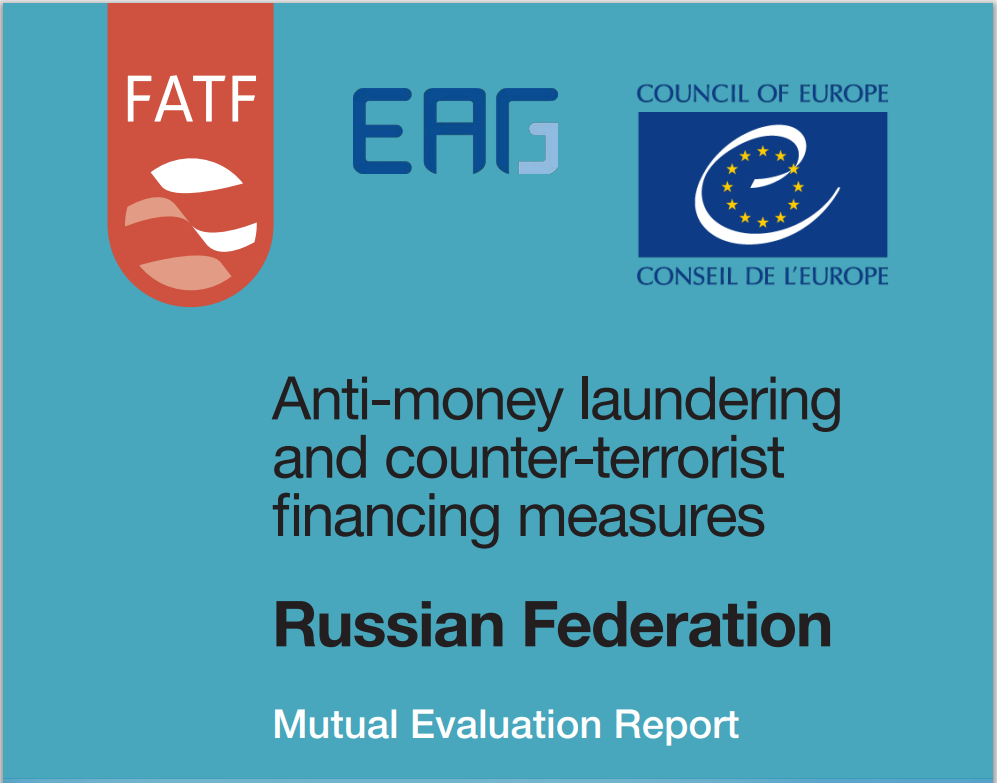
The FATF adopted this report at its October 2019 Plenary meeting.
OPERATORS OF INVESTMENT PLATFORMS ARE OBLIGED TO ORGANIZE MEASURES TO AML/CFT
Written by Manuylova NatalyaFrom 01.01.2020, a new entity will appear on the financial market - the operator of the investment platform. In accordance with subparagraph 7) of clause 1 of article 2 of Federal law dated 02.08.2019 No. 259-FL "On attracting investments using investment platforms and on amending certain legislative acts of the Russian Federation" the operator of the investment platform is a business company created in accordance with the legislation of the Russian Federation, carrying out activities to organize investment attraction and included by the Bank of Russia in the register of investment platform operators.
It is worth noting that from 01.01.2020 the amendments to the Federal Law of 07.08.2001 also come into force. No. 115-FL "On combating the legalization (laundering) of proceeds from crime and the financing of terrorism" (hereinafter - Law No. 115-FL), according to which:
1. Operators of investment platforms become the subject of Law No. 115-FL (Supplement to the first part of Article 5 with a new fourth paragraph of the above law);
2. The operators of investment platforms are entrusted with the obligations specified in Article 7 of Law No. 115-FL, including the application of measures to freeze (block) money or other property in accordance with the requirements established by subparagraph 6 of paragraph 1 of Article 7 of Law No. 115- Federal Law.
3. The operators of investment platforms have been granted the rights specified in Article 7 of Law No. 115-FL, in particular:
- simplified identification of investment platform operators with respect to customers in certain cases, namely: when concluding agreements on the provision of investment assistance services involving investment using the investment platform for an amount not exceeding 100,000 rubles, provided that all settlements are carried out exclusively in non-cash form on accounts opened with a Russian credit institution;
- an assignment of the identification procedure to third parties - on the basis of the contract to entrust the credit organization with the identification or simplified identification of the individual customer, as well as the identification of the client’s representative, beneficiary and beneficial owner.
4. The internal control rules of the Investment Platform Operators are developed taking into account the requirements approved by the Central Bank of the Russian Federation in agreement with the authorized body, and approved by the head of the organization.
5. Qualification requirements for special officials responsible for the implementation of internal control rules, targeted internal control rules, as well as requirements for training and education, identification of clients, client representatives (including identification of the sole executive body as a representative of the client), beneficiaries and beneficial owners are determined in accordance with the procedure established by the Bank of Russia.
Please note that non-compliance with the requirements of Law No. 115-FL entails the prosecution of an official and organization on the basis of Article 15.27 of the Code of Administrative Offenses of the Russian Federation. The consequences of non-compliance with the requirements of the AML/CFT legislation May result in criminal prosecution.
For questions regarding the organization of work on the implementation of Law No. 115-FL and training, write to This email address is being protected from spambots. You need JavaScript enabled to view it. or This email address is being protected from spambots. You need JavaScript enabled to view it..
More...
FINMA PUBLISHES STABLE COIN GUIDELINES: EXPERT OPINION
Written by Manuylova NatalyaOn September 11, 2019, the Swiss financial market supervision authority FINMA published an addendum to the ICO manual, which outlined its position on stablecoin1 under the Swiss supervision legislation. Observing the steady growth of stablecoin projects since 2018, in the context of a request from the Libra Association, FINMA in the initial directions provides information on how the Swiss supervisory will apply the relevant rules for the assessment and supervision of stablecoins.
According to FINMA, the supervisor considers stablecoin in accordance with the law on supervision of an existing approach to blockchain-based tokens: the main focus is on the economic nature and purpose of the token (“substance over form”). When making decisions on specific projects, FINMA will “follow the proven principle of“ same risks, same rules ”, and also take into account the features of each project.
The requirements under the supervision law may vary depending on which assets (e.g. currencies, goods, real estate or securities) are supported by stablecoin and how the legal rights of its owners will be protected (see the Overview in the Appendix to the Guidelines ICO, Appendix 2).
FINMA provided the legal assessment and indicative classification of the Libra project in accordance with Swiss supervisory law based on the available information. It is worth noting that FINMA focused on the fact that the classification may change during the implementation of the project.
Here are a few key points:
- The project falls under the regulation of Swiss financial market infrastructure. The project, as it is currently envisioned, will require a FINMA payment system license.
- The regulatory requirements for payment systems in Switzerland are based on prevailing international standards, in particular, on the Principles for Financial Market Infrastructures (PFMI). These requirements also apply to cyber risk management.
- The Swiss payment system is automatically covered by the Anti-Money Laundering Act. The highest international anti-money laundering standards must be ensured throughout the project’s ecosystem. Such an ecosystem must be protected from the increased risks of money laundering.
- According to the Financial Market Infrastructure Act (FMIA), all additional services that increase the risks of the payment system must comply with the relevant additional requirements. This means that all potential risks of the Swiss payment system, including banking risks, can be eliminated by introducing the relevant requirements in accordance with the principle of “same risks, same rules”. In connection with the release of Libra payment tokens, the services planned by the Libra project will clearly go beyond a purely payment system and, therefore, will be the subject of such additional requirements.
- These additional requirements will relate in particular to the distribution of capital (for credit, market and operational risks), concentration of risk and liquidity, as well as the management of the Libra reserve.
- Additional requirements will be based on generally accepted standards for similar activities in financial markets and should reflect the scope of the project. For example, for similar banking risks, banking regulatory requirements will apply. Thus, the license of the Swiss payment system will allow you to combine the strengths of banking and infrastructure regulation.
A prerequisite for obtaining a license as a payment system would be that the revenues and risks associated with the management of the reserve are fully covered by the Libra Association, and not by the providers of funds - stablecoin holders.
The planned international scope of the project requires an internationally coordinated approach. In particular, the definition of requirements for reserve management and management, as well as for combating money laundering, should be developed in the framework of international coordination.
Matters beyond supervisory law.
A possible licensing procedure under Swiss supervision legislation will only begin after FINMA receives a specific licensing application. In accordance with its practice, FINMA will not provide public information on the status of any existing licensing procedures and will not speculate on when it may be completed.
Other issues raised in the context of the Libra project, such as those related to tax law, competition law or data protection law, are outside the scope of supervisory law and therefore are not within the competence of FINMA.
In the next message, we will analyze in detail the documents posted below.
Source: FINMA.
GUIDANCE FOR A RISK-BASED APPROACH TO VIRTUAL ASSETS AND VIRTUAL ASSET SERVICE PROVIDERS
Written by Aleksandr PodobnykhOrlando, FL, United States – 21 June 2019. Financial innovation has drastically changed the financial landscape. New technologies, services and products offer efficient alternatives to classic financial products and can improve financial inclusion. At the same time, the speed and anonymity of some of these innovative products can attract criminals and terrorist who wish to use them to launder the proceeds of their crimes and finance their illicit activities.
This guidance will help countries and virtual asset service providers understand their anti-money laundering and counter-terrorist financing obligations, and effectively implement the FATF’s requirements as they apply to this sector.
This guidance follows revisions to the FATF Recommendations in October 2018 and June 2019 in response to the increasing use of virtual assets for money laundering and terrorist financing. The FATF strengthened its standards to clarify the application of anti-money laundering and counter- terrorist financing requirements on virtual assets and virtual asset service providers. Countries are now required to assess and mitigate their risks associated with virtual asset financial activities and providers; license or register providers and subject them to supervision or monitoring by competent national authorities. Virtual asset service providers are subject to the same relevant FATF measures that apply to financial institutions.
The guidance addresses the following:
- How do virtual assets activities and virtual asset service providers fall within the scope of the FATF Recommendations? (Section II)
- How should countries and competent authorities apply the FATF Recommendations in the context of virtual assets or virtual asset service providers? (Section III)
- How do the FATF Recommendations apply to virtual asset service providers, and other entities (including banks, securities broker-dealers) that engage in or provide virtual asset covered activities?
The guidance, which benefited from dialogue with the private sector, also includes examples of national approaches to regulating and supervising virtual asset activities and virtual asset service providers to prevent their misuse for money laundering and terrorist financing.
Source: Financial Action Task Force (FATF).
APPLICATION OF FINCEN’S REGULATIONS TO CERTAIN BUSINESS MODELS INVOLVING CONVERTIBLE VIRTUAL CURRENCIES
Written by Aleksandr PodobnykhOn May 9, 2019, FinCEN released guidelines for applying the rules to some of the Business Models for Attracting Convertible Virtual Currencies. To remind individuals under the Banking Secrets Act (BSA) about how FinCEN rules relating to companies providing monetary services (MSBs) apply to certain business models related to the transfer of money denominated in value, which replaces currency, in particular, convertible virtual currencies (CVCs).
This guidance does not establish any new regulatory expectations or requirements. Rather, it consolidates current FinCEN regulations, and related administrative rulings and guidance issued since 2011, and then applies these rules and interpretations to other common business models involving CVC engaging in the same underlying patterns of activity.
This guidance is intended to help financial institutions comply with their existing obligations under the BSA as they relate to current and emerging business models involving CVC by describing FinCEN’s existing regulatory approach to the issues most frequently raised by industry, law enforcement, and other regulatory bodies within this evolving financial environment. In this regard, it covers only certain business models and necessarily does not address every potential combination of facts and circumstances. Thus, a person working with a business model not specifically included in this guidance may still have BSA obligations.
The overall structure of this guidance is as follows:
Section 1 defines certain key concepts within the context of the guidance. Although the titles or names assigned to these key concepts may coincide with terms customarily used by industry and share similar attributes, for purposes of the guidance their meaning is limited to the definition provided in the guidance.
Section 2 consolidates and explains current FinCEN regulations, previous administrative rulings, and guidance involving the regulation of money transmission under the BSA. By consolidating and summarizing rules and interpretation in a single Section, this guidance provides a resource to help financial institutions comply with their existing obligations under the BSA as they relate to current and emerging activities involving CVC.
Section 3 summarizes the development and content of FinCEN’s 2013 guidance on the application of money transmission regulations to transactions denominated in CVC.
Sections 4 and 5 describe FinCEN’s existing regulatory approach to current and emerging business models using patterns of activity involving CVC. This approach illustrates how FinCEN fits existing interpretations about certain activities to other activities that at first may seem unrelated, but conform to the same combination of key facts and circumstances.
Finally, Section 6 contains a list of resources to which interested parties may refer for further explanation about the content of the guidance, or to assist in evaluating facts and circumstances not expressly covered in this guidance.
Source: United States Department of the Treasury Financial Crimes Enforcement Network | FinCEN.gov
IMPORTANT APPROACHES TO THE ORGANIZATION OF WORK ON IMPLEMENTATION OF AML/CFT LEGISLATION REQUIREMENTS
Written by Aleksandr PodobnykhOn March 27, 2019, training for students of the 7th stream of the BCL (Blockchain Lawyers) supplementary education program was completed at the Federation Council.
As part of that, the audience in a round table format along with the first deputy chairman of the Federation Council Committee on Economic Policy, the founders and teachers of the course, as well as invited experts discussed the regulation of the digital economy and modern technologies in Russia.
Natalya Manuilova paid special attention to the following issues: that the Bank of Russia had several new and important documents aimed at fulfilling the requirements of the legislation in the area of countering the legalization (laundering) of proceeds from crime and the financing of terrorism (AML/CFT). Important on the approach to the organization of work in this direction.
Thus, one of these documents is Directive No. 5083-U of 02/27/2019 “On Amendments to the Regulation of the Bank of Russia of March 2, 2012 No. 375-P“ On the Requirements for the Rules of Internal Control of a Credit Organization to Counter Legalization (Money Laundering) criminal proceeds and the financing of terrorism. ” In accordance with the changes that will come into force on 04/05/2019, the ML/TF risk management systems in credit institutions will have to take into account the results of a national risk assessment of transactions (transactions) in order to legalize (launder) proceeds from crime, and the financing of terrorism, posted on the official website of the authorized body on the Internet information and telecommunications network.
The possibility for credit institutions to install in the Risk Management Programs “other factors independently determined by the credit organization” scares many, but these factors must be fixed, fixed in the Rules of the credit organization. And no one has canceled a systematic approach - why are some requirements for some, and others for others? “Documentary fixation” will compel to substantiate certain AML/CFT measures.
In accordance with the Bank of Russia Newsletter No. IN-014-12/27 of 03/27/2019 “On Approaches to the Procedure for the Implementation of Credit Rights by Credit Institutions Provided by Sub-clause 1.1 of Clause 1 of Article 7 of Federal Law No. 115 “On Counteracting Legalization (Laundering) of Revenues criminal proceeds and the financing of terrorism” the Bank of Russia draws the attention of credit institutions to the need to follow the results of their assessment of the extent (level) of the risk of a client’s operations for AML/FT when implementing these powers in accordance with its own rules of internal control in order to counter the legalization (laundering) of proceeds from crime and the financing of terrorism.
Will high-risk transactions (deals) with digital assets be added to the list? Definitely! Companies need to start preparing letter templates - explanations about the sources of funds received to the account, etc.
The Bank of Russia still had to pay attention to the not quite adequate measures of credit institutions regarding blocking accounts under federal law 115, inquiries about the source of clients funds, whose operations in principle do not bear and cannot bear the risks of ML/FT and the risk of involvement credit organization in the scheme of ML/FT.
Let's hope for positive changes, because for a long time, the “struggle” of a number of banks on AML/CFT issues has discredited the AML/CFT system as a whole, and only the one who has not come to the bank does not care about 115-FL.
At the same time, the information letter of Rosfinmonitoring dated March 1, 2019 No. 59 “On Methodological Recommendations for Assessing ML/TF Risks by Organizations that Operate with Monetary Funds or Other Property and individual entrepreneur” was discussed.
From which it was seen that there are three types of risks:
- risks associated with countries and individual geographic territories (country risks);
- customer related risks (customer risks);
- risks associated with products, services, operations (transactions) or supply chains made by the customer (operational risks), a high level for operations with digital assets.
О КОСАтка
Корпоративная система аналитики Транзакция Криптовалюта Актив - кибербезопасность инфраструктуры блокчейнов и антифрод в криптовалютной сфере (антискам, прозрачность, комплаенс).
Связаться
Российская Федерация, Москва
Тел.: +7 (911) 999 9868
Факс:
Почта: cosatca@ueba.su
Сайт: www.ueba.su

